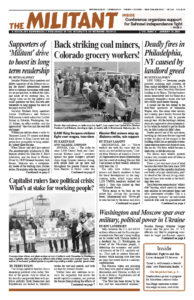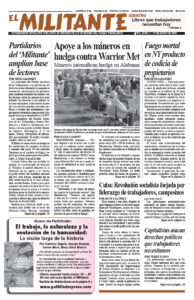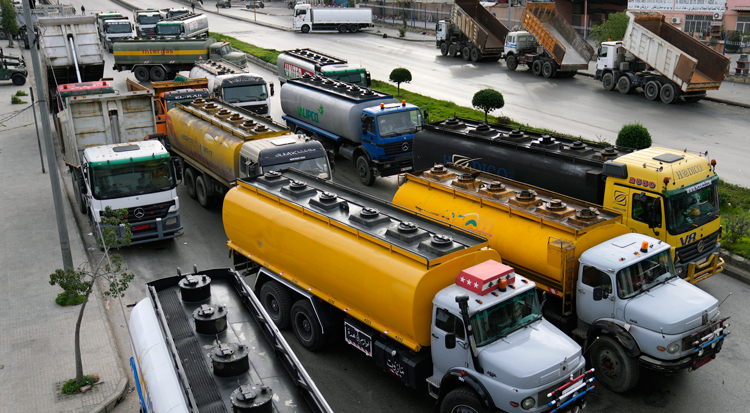A 12-hour general strike by truckers, public transportation workers and other unionists shut Lebanon down Jan. 13. Thousands of drivers and transport workers closed the country’s major highways, as well as roads inside cities and towns, where taxi and truck drivers used their vehicles to block traffic. In Beirut, the capital, many roads were blocked by giant sanitation trucks and other vehicles. Many workplaces, banks, schools and universities shut down.
Since government subsidies on fuel were ended in August, the price has soared by 450%, while workers’ wages stayed the same. Filling up your gas tank today costs more than the country’s monthly minimum wage. “I want any official,” said striker Mohamed al-Muqdad, “to try to live for one day with the salary of a poor worker.”
The crisis wracking Lebanon’s capitalist rulers is devastating working people, who have to spend hours daily struggling to find food and medicines they can afford. Over two-thirds of households can’t access clean water and the state electric utility provides barely two hours of power a day.
Lebanon’s currency has lost more than 90% of its value in less than two years, and, according to the World Bank, 80% of the country’s population lives in poverty.
The International Monetary Fund demands the country’s government end all subsidies on food, medicine and fuel as the price for new loans. And a large part of any “aid” would have to be directed towards servicing the country’s foreign debt rather than helping alleviate the crisis facing working people in Lebanon.


